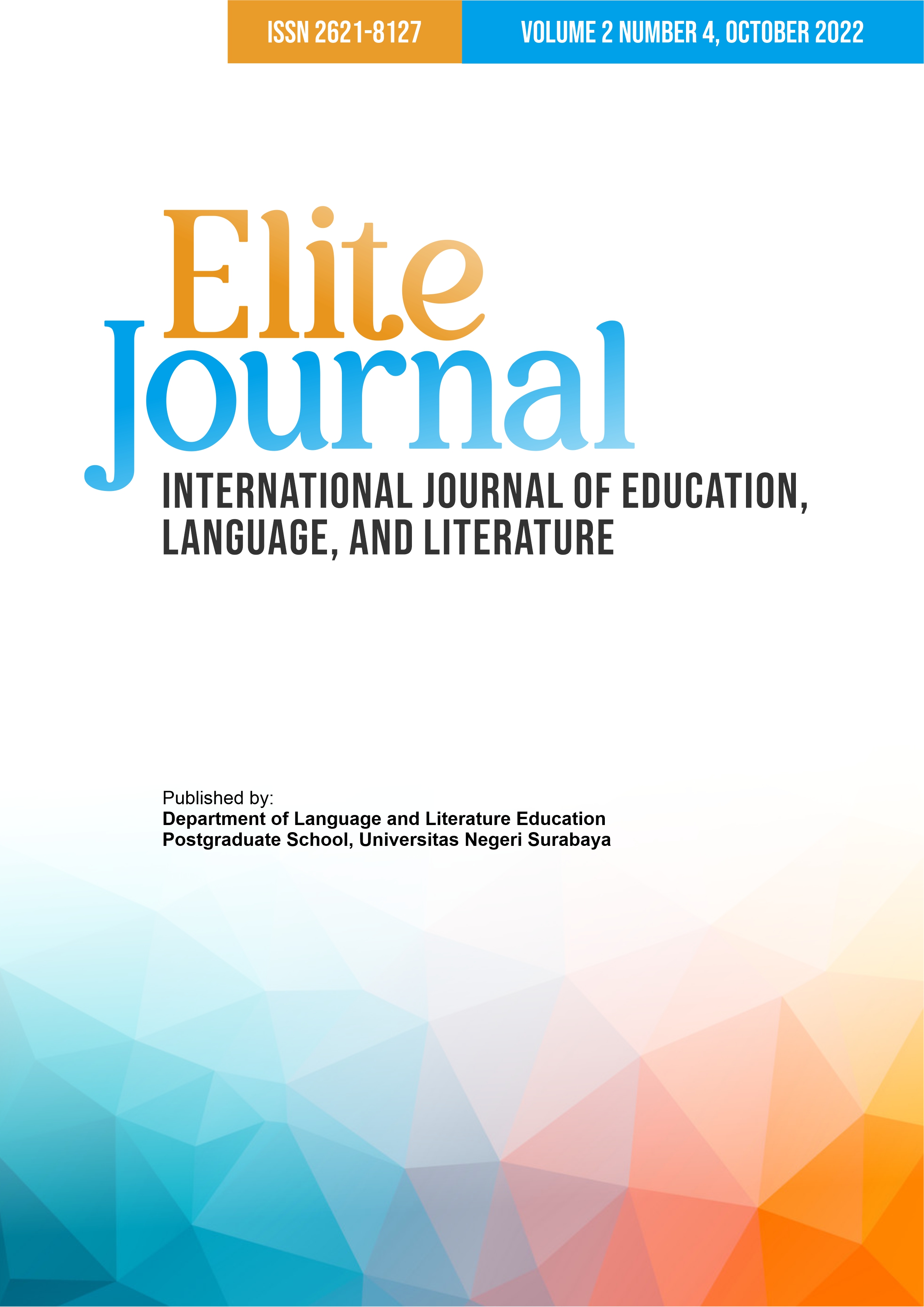EXISTENTIALIST FEMINISM REFLECTED IN ACEVEDO’S “WITH THE FIRE ON HIGH”
DOI:
https://doi.org/10.26740/elitejournal.v2n4.p235-243Keywords:
existentialist feminism, transcendence, with the fire on highAbstract
In patriarchal societies, women are typically considered inferiors, leading to feminist movements. There are many different schools of feminism, including liberal, Marxist and socialist, existentialist, radical, and so forth. This research focuses on existentialist feminism as it is presented in Elizabeth Acevedo's With the Fire on High (2019). This research looks at how Emoni Santiago's character portrays the domestication of women and how Emoni Santiago embraces her circumstances and being a woman in the novel. Existentialist feminism, advocated by Simone de Beauvoir is used to examine Emoni's portrayal as a genuine woman who can exist. Feminist theory is used in this descriptive qualitative research study. Due to her ability to do household and public activities, the outcome demonstrates that Emoni exemplifies existentialist feminism. She succeeds in overcoming her dependence on and subordination to men regarding her economic state, personal decisions, and marriage. All possible manifestations of Emoni Santiago's existence are referred to as the transcendence of women in modern society. Emoni can eliminate labels for women like second sex and the Other by attaining a level of transcendence. Existentialist feminism can be fully realized by women being able to do a variety of tasks or positions in the private and public spheres because they are aware of what it means to be present as a woman in society. Next, having a strong desire to do or create something can be used by women to justify their existence in a patriarchal society.
References
Bhasin, Kamla. (2006). What is Patriarchy. New Delhi.
De Beauvoir, S. (1989). The Second Sex, Classic and Contemporary Readings in Sociology. New York: Vantage Books.
Hooks, B. (2000). Feminism is for everybody: passionate politics. Canada: South End Press Cambridge, MA.
Mangan, L. (2019). The Feminism Book: Big Ideas Simply Explained. Dorling Kindersley Ltd.
Panza, C., & Gale, G. (2008). Existentialism for dummies. John Wiley & Sons.
Priyadharshini, P., Mohan, S., & Hassan, A. (2022). A Feministic Discourse of Existentialism in Namita Gokhale? s Select Works. World Journal of English Language, 12(2).
Tong, R. (2009). Feminist thought: A more comprehensive introduction. Westview Press.
Tuttle, L. (1986). Encyclopedia of feminism. Oxford.
Warren, A., & Wellek, R. (1977). Theory of Literature. San Diego: Harcourt Brace Jovanovich, Publishers.
Downloads
Published
How to Cite
Issue
Section
License
Copyright (c) 2022 Berya Kamayan Adi Martinus Martinus, Linusia Marsih

This work is licensed under a Creative Commons Attribution 4.0 International License.
 Abstract views: 4975
,
Abstract views: 4975
, PDF Downloads: 934
PDF Downloads: 934





